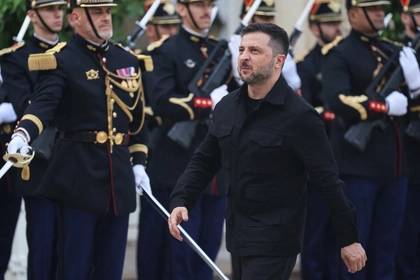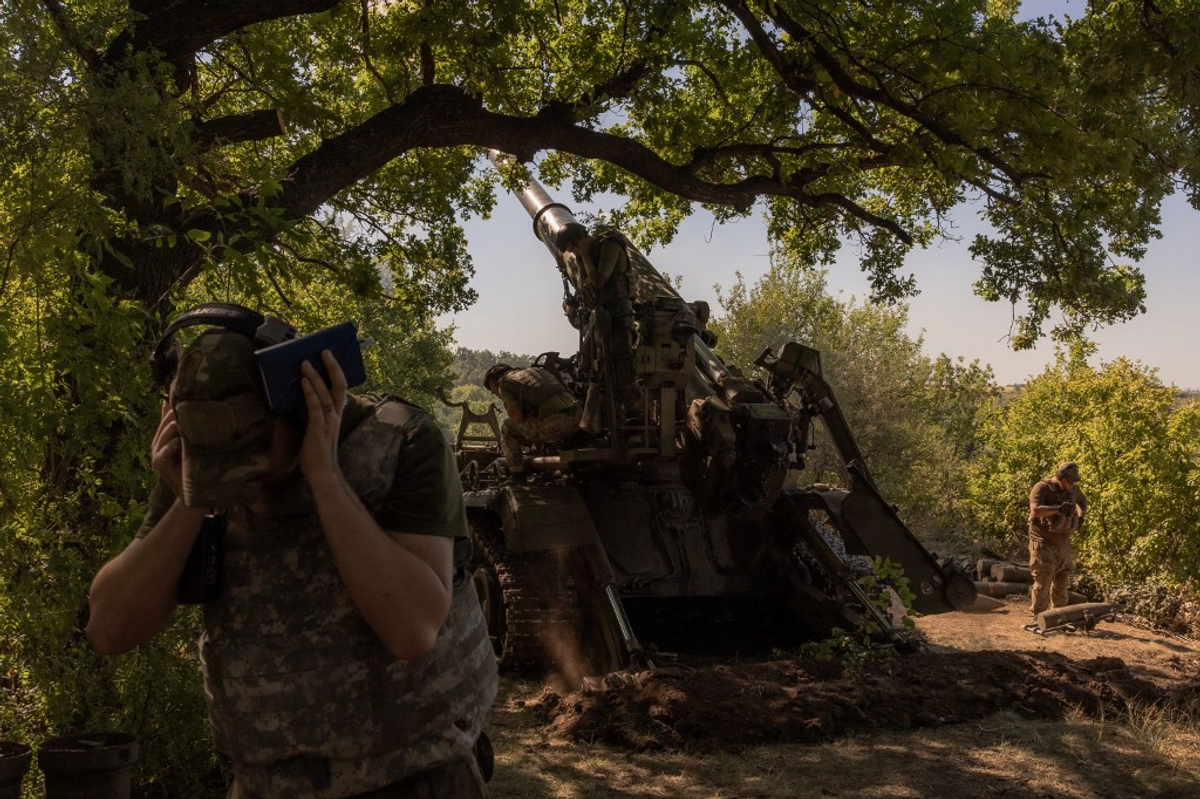While peace talks drag on, Russian President Vladimir Putin is preparing a new offensive in eastern Ukraine, with European and Ukrainian officials warning that a breakthrough could come near Pokrovsk, a city Moscow has failed to capture for over a year.
Last week, German and French officials discussed the buildup of Russian forces near the city, people familiar with the talks told Bloomberg.
JOIN US ON TELEGRAM
Follow our coverage of the war on the @Kyivpost_official.
On Friday, Ukrainian President Volodymyr Zelensky said Russia had deployed 100,000 troops to the area.
Pokrovsk is a key transport hub for Ukrainian forces in Donbas. Its fall could open the way for Russian troops to attack the final major Ukrainian-held cities in the Donetsk region: Sloviansk and Kramatorsk.
The industrial eastern Ukrainian city has been the main declared objective for a bloody Russian offensive launched more than a year ago.
The Russian thrust towards Dobropillya was on a narrow front and, if consolidated, would make it even more difficult for Ukrainian forces to supply the Pokrovsk salient, reports said.
Russian forces reached within 8-10 kilometers of Pokrovsk in August and September 2024 but were unable to capture it and have attempted to encircle the city this year.
In mid-August, Russian troops briefly broke through north of Pokrovsk, advancing about 10 kilometers (6.25 miles) near Dobropillia before Ukrainian units pushed them back.
The summer offensive resulted in minimal gains, with Moscow capturing just 2,033 square kilometers (785 square miles), or 0.3% of Ukraine’s territory.

Other Topics of Interest
‘Main Guarantee is a Strong Ukrainian Army’ – Zelensky Hints at Coalition Meeting Outcome
The consensus at the Paris meeting on Ukraine’s postwar guarantees seemed to focus on strengthening the Ukrainian military, while potential allied troop deployments remain a taboo subject.
Speaking in Beijing on Wednesday after viewing a military parade with Chinese leader Xi Jinping and North Korea’s Kim Jong Un, Putin said he would continue fighting if a peace deal cannot be reached.
He praised Russian forces’ advances, claiming they were making progress “on all fronts” and had weakened Ukraine’s military.
If there was no peace deal, he said, “then we will have to resolve all our tasks militarily.”
Zelensky, who arrived in Paris the same day for talks with European allies, said he has seen no signs that Moscow is serious about ending the war.
With no signs of a Russian withdrawal, Ukraine and its allies are working to strengthen Kyiv’s army.
German Chancellor Friedrich Merz called the effort “the most important security guarantee we can provide,” while European Commission President Ursula von der Leyen said Ukraine must become “a steel porcupine that is indigestible for potential invaders.”
European countries are funding purchases of US weapons, with Zelensky hoping for $1 billion in monthly acquisitions.
Last week, the US approved the sale of 3,350 missiles with ranges up to 450 kilometers (280 miles), worth $825 million.
Ukraine is also developing new weapons at home, including the Flamingo cruise missile, capable of flying 3,000 kilometers (1,900 miles), and using artificial intelligence to coordinate drone swarm attacks.

